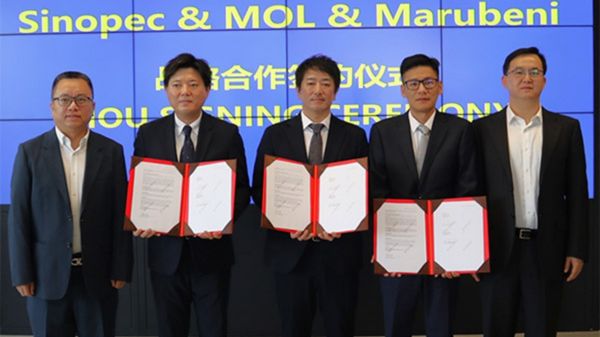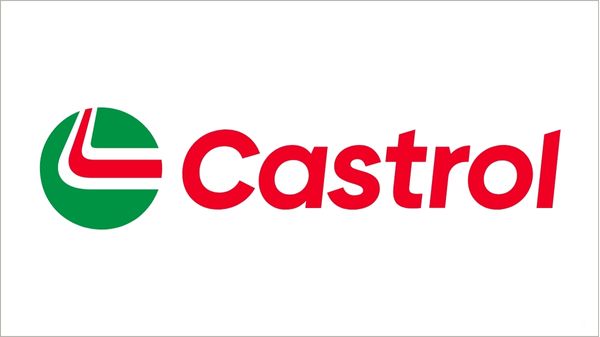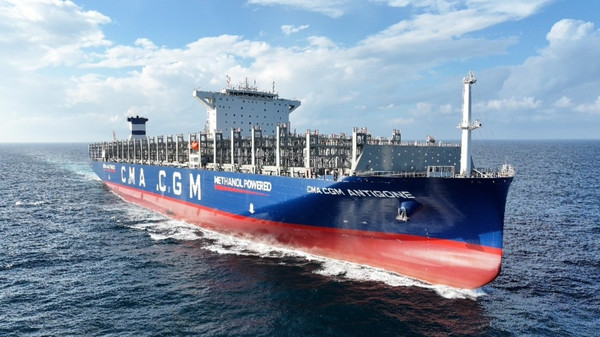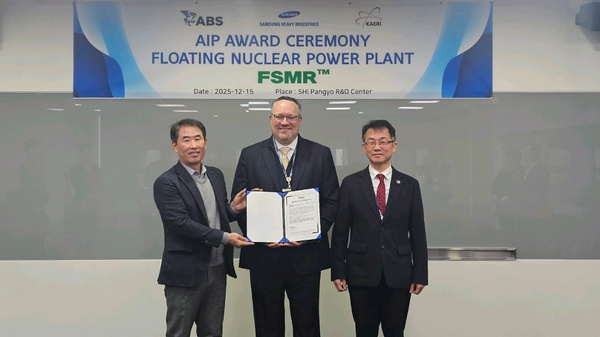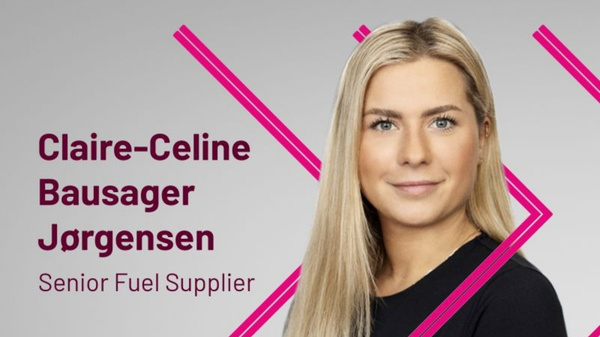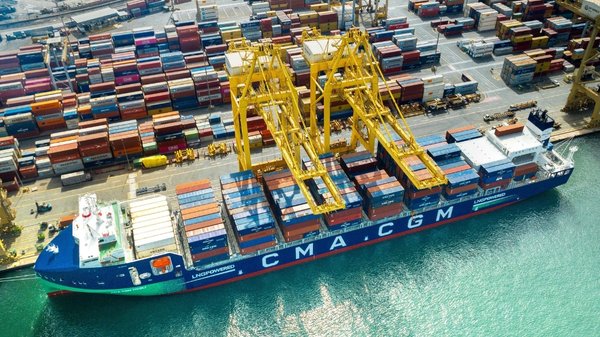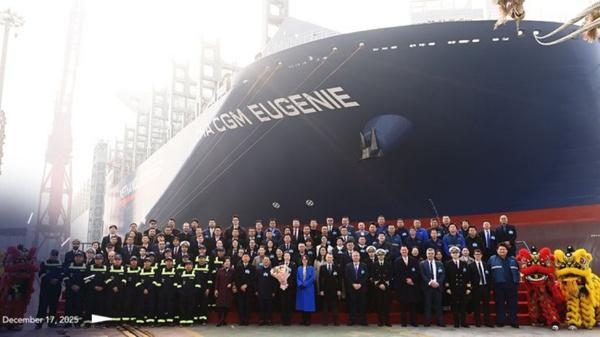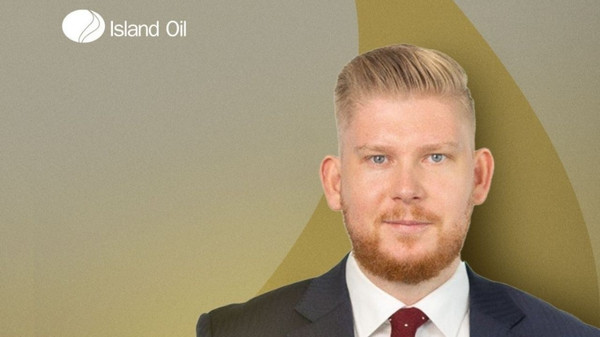Ultrapetrol (Bahamas) Limited, a transportation company serving three markets (River Business, Offshore Supply Business and Ocean Business), has said that it expects to achieve 'substantial' fuel savings as a result of its re-engine program.
In a statement, Ultrapetrol said: "The company has successfully continued its re-engining and re-powering programs that aim to convert engines on eleven of its main pushboats from diesel to heavy fuel consuming ones. Having finalized the re-engining of two pushboats in the second quarter of 2012, six heavy fuel-consuming pushboats are now in operation (compared to only two such pushboats in operation a year ago) and the next re-engined pushboat is expected to commence operation within the first quarter of 2013 bringing the total to seven where we have installed 17 out of a total of 25 new engines purchased. We expect this program to lead to substantial savings in fuel expense and to an increase in tow size and navigation speed which will enhance our EBITDA margins in the future."
The fuel savings forecast was revealed during the announcement of the company's second quarter results. Please find Ultrapetrol's statement below.
Second Quarter 2012 and subsequent events highlights:
Recorded second quarter 2012 revenues of $79.5 million;
Recorded adjusted EBITDA before foreign currency exchange variance of $12.9 million in the second quarter of 2012;1 which includes adjusted EBITDA of $5.4 million from our River Business segment, adjusted EBITDA of $6.9 million from our Offshore Supply Business segment, adjusted EBITDA of $0.6 million from our Ocean Business segment adjusted EBITDA. After including a loss of $3.3 million from financial income and other financial expense (mainly attributable to foreign currency exchange variance), the adjusted EBITDA was $9.6 million;
Recorded total net loss and net loss per share of $5.4 million and $0.18, respectively, in the second quarter of 2012, which includes a $2.6 million gain for deferred taxes on an unrealized foreign currency exchange loss on U.S. dollar-denominated debt of our Brazilian subsidiary in our Offshore Supply Business.2 Excluding the effect of this gain, the adjusted net loss and adjusted net loss per share are $8.0 million and $0.27 per share, respectively;
Second quarter 2012 Adjusted EBITDA for our Offshore Supply Business segment increased 47% compared with the same period of 2011;
The Company has nine vessels operating in its Platform Supply Vessel, or PSV, fleet. On August 10, 2012, our recently delivered newly built PSV, UP Jade, commenced its operations in Brazil under a long term time charter with Petrobras. The upcoming deliveries of the first two PSVs out of three currently under construction in India are expected to occur in the fourth quarter of 2012;
Two new re-engined and re-powered pushboats in our River Business fleet (Alto Parana and Cavalier XII) were delivered during the second quarter of 2012, increasing the number of re-engined pushboats in operation to six as opposed to only two this time last year; and
In the second quarter of 2012 we have entered into three separate barge building contracts for a total of approximately $63.0 million. Over two thirds of these barges or $43.0 million will be delivered in the second half of 2012 generating additional adjusted EBITDA.
Felipe Menendez, Ultrapetrol's President and Chief Executive Officer, stated, "During this quarter our River Business suffered from the drought which has cut the soybean crop in the Hidrovia region in 2012 in half. We have partially substituted the soybean volume lost with iron ore but the margins that we expect to obtain are lower and the longer distances involved in the transportation make our pushing capacity a limiting factor. As a compensating element our barge shipyard has secured orders to build 38 dry barges and 14 tank barges to be delivered beginning in the second half of 2012 through April 2013 for a total consideration of approximately $63.0 million. We estimate that with the deliveries that will take place through the end of 2012 we will obtain a consideration of approximately $43.0 million to partially compensate for the lower margins related to the increased transportation of iron ore as a result of the drought."
Mr. Menendez continued, "During this quarter we took delivery of our first new building from India UP Jade. The ship commenced her four-year charter with Petrobras at $33,000 per day on August 10, 2012. With this addition plus the increase in rate that we expect to obtain from UP Agua-Marinha, UP Topazio and UP Diamante whose old charters expire in the fourth quarter, we expect to have significant additional EBITDA generation in the second half of 2012. Our remaining three new buildings are scheduled for delivery in October and December 2012 and March 2013 respectively so this time next year our operating fleet in our Offshore Supply Business is expected to be 50% larger than it was in the second quarter 2012."
Overview of Financial Results
Total revenues for the second quarter 2012 were $79.5 million as compared with $70.0 million in the same period of 2011.
Adjusted EBITDA for the second quarter 2012 was $9.6 million as compared with $12.7 million in the same period of 2011. For a reconciliation of adjusted EBITDA to cash flows from operating activities, please see the tables at the end of this release.
Adjusted net loss for the second quarter of 2012 was $8.0 million, or $0.27 per share as compared with net loss of $6.0 million, or $0.2 per share, during the same period of 2011. Second quarter 2012 net loss includes a $2.6 million gain for deferred taxes on an unrealized foreign currency exchange loss on U.S. dollar-denominated debt of our Brazilian subsidiary in the Offshore Supply Business. Including the effect of this gain, the net loss for the second quarter of 2012 was $5.4 million, or $0.18 per share.
Len Hoskinson, Ultrapetrol's Chief Financial Officer, said, "In August 2012 we secured a $10.0 million bridge loan from DVB to complete the pre delivery financing of UP Pearl and UP Onyx at the yard in India. We are in the process of organizing the new post delivery financing of all four of the Indian PSVs which we expect to complete in the second half of the year."
Business Segment Highlights
River
As a consequence of the combined effect of a severe drought that affected the soybean production in the region and the lower than usual water levels in the Upper Paraguay River at the beginning of the second quarter our River Business experienced a 7% decrease in the volume of cargo transported in the second quarter of 2012 as compared with the same period of 2011.
Second quarter 2012 River Business segment adjusted EBITDA decreased to $5.4 million from $5.9 million when compared to the same period of 2011.
Our operating costs in the River Business, particularly manning and maintenance costs, have been impacted by revaluation of the local currency or by inflationary pressure on costs not adjusted by a proportional devaluation of the local currencies with respect to the U.S. dollar.
According to the United States Department of Agriculture, the soybean crop in Paraguay for 2012 has dropped to 4.0 million tons down from 8.4 million tons in 2011, a decrease of 52% year over year. This decrease is mainly attributable to the effects of a severe drought and higher than average temperatures in January and February in large parts of Argentina and central Brazil as well as Paraguay. Soybean and particularly the early variety crop in Paraguay suffered severe impacts on its yields. Compounding this effect, low river levels limited the draft at which we could operate through the Upper Paraguay River at the beginning of the second quarter. Partially offsetting the milder prospects for agricultural products in the Hidrovia region for 2012, iron ore production in the three mines connected with the river system has increased substantially. As a result, cargo mix for the first half of 2012 has shown a stronger skew for iron ore as a result of the Company's efforts to fix the available capacity left by agricultural products on contracts for carrying iron ore. Although these ore volumes are partially replacing the decrease in soybean cargo, such replacement is showing the lower margins associated to this type of cargo on account of longer round trips and consequent higher fuel consumption. Additionally, this temporary shift in our cargo mix towards a larger share of iron ore places more pressure on our pushing capacity. The Company continues to add capacity and implement various margin-expansionary initiatives to profitably capitalize on the segment's long term growing demand of the agricultural sector along the Hidrovia which remains strong.
Seeded area is expected to continue to grow fostered by the strong prices of soybean and other agricultural commodities. This steady long-term growth trend represents an important demand driver for Ultrapetrol's future River Business.
The Company's barge building shipyard, which we believe is one of the most modern in South America, has been in operation since the first quarter of 2010. During the second quarter 2012 the Company entered into three very significant contracts to build barges for third parties:
On April 25, 2012, we entered into a barge building contract where we agreed to build a total of 24 jumbo barges (these barges when built will be leased by the Company for 10 years).
On May 18, 2012, we entered into a contract to build for a third party 14 liquid and dry barges for a total of $20.3 million.
On July 24, 2012, we entered into a similar contract to build for the same buyers another 14 liquid and dry barges for a total of $20.3 million. In both these sales the barges will be exported to Colombia and the buyers have advanced 50% of the purchase price.
With these orders the yard will be fully employed until the end of the first quarter 2013. The Company expects that all of the 24 barges of the first order and all of the 14 dry and liquid barges of the second order will be delivered in the third and fourth quarter of 2012. The resulting adjusted EBITDA will be reported during the second half of this year (none of these deliveries have taken place yet; the first three barges are scheduled to be delivered in the third week of August).
The Company has successfully continued its re-engining and re-powering programs that aim to convert engines on eleven of its main pushboats from diesel to heavy fuel consuming ones. Having finalized the re-engining of two pushboats in the second quarter of 2012, six heavy fuel-consuming pushboats are now in operation (compared to only two such pushboats in operation a year ago) and the next re-engined pushboat is expected to commence operation within the first quarter of 2013 bringing the total to seven where we have installed 17 out of a total of 25 new engines purchased. We expect this program to lead to substantial savings in fuel expense and to an increase in tow size and navigation speed which will enhance our EBITDA margins in the future.
Offshore Supply
In the Offshore Supply Business, with the introduction of our UP Jasper into a long-term charter in the North Sea in October 2011, and the commencement of operation of our UP Jade in August 2012, we now operate a fleet of nine PSVs. The adjusted EBITDA generated by the Offshore Supply Business segment during the second quarter of 2012 was $6.9 million, or 47% higher than the $4.7 million generated in the same period of 2011.
Total revenues from the Offshore Supply Business for the second quarter of 2012 increased by $3.1 million compared with the same period of 2011. This difference represents a 21% increase which was primarily attributable to the full quarter operation of our UP Jasper which entered into service on September 29, 2011, and to an increase in operational days of our UP Topazio, UP Safira and UP Agua-Marinha which underwent drydocks during the second quarter of 2011.
In Brazil, operating costs, particularly manning costs, have been increasing as a result of the revaluation of the local currency and inflationary pressure on salaries and expenses both of which affected our earnings during a significant part of 2011. During the second quarter of 2012 the Brazilian real has seen a devaluation which if sustained may ease the upward trend of our costs but this has had an immediate accounting effect of a negative foreign currency exchange variance on our Brazilian accounts in the second quarter 2012.
As planned, Ultrapetrol continues its building program in India that will add three additional newbuilt vessels to the fleet. We expect to take delivery of the first two PSVs out of three currently under construction in India, UP Amber and UP Pearl, during the fourth quarter of 2012.
The Company believes that the Brazilian market should grow hand in hand with Petrobras' capital expenditure plans. Although we cannot make any assurances of Petrobras fully implementing such business plan, Petrobras, in their release on Form 6-K on June 14, 2012, has announced a business plan for 2012-2016 of $236.5 billion of investments. We further believe that the North Sea market should follow as the natural balancing out of the market occurs in the forthcoming years. Ultrapetrol's fleet in the Offshore Supply Business has the advantage of being very modern and technologically capable of supporting deep sea oil drilling in both the Brazilian and North Sea markets.
Ocean
The Ocean Business segment generated adjusted EBITDA of $0.6 million in the second quarter of 2012 as compared to adjusted EBITDA of $1.6 million in the same period of 2011.
The 19% increase in revenues from the Ocean Business from $16.4 million in the second quarter of 2011 to $19.6 million in the same period of 2012 is mainly attributable to three factors: 1) the effect of the tariff increases of our container feeder vessels M.V. Asturiano and M.V. Argentino; 2) the effect of the adjustment in the hire of our Product Tanker fleet to reflect increased manning costs; and 3) the partial operation of our tank barge Parana Petrol at the end of the second quarter. These factors were partly offset by 14 offhire days of our Amadeo which underwent its scheduled drydock during the first quarter of 2012 and was delayed into the second quarter.
The Company operated a total of four vessels in its Product Tanker fleet in the second quarter of 2012 (Miranda I, Amadeo, Alejandrina, and Austral) which continue to be employed in the South American coastal trade on charters with oil majors that operate in the region.
In our Ocean Business, inflationary pressures particularly in manning costs not compensated by a proportional devaluation of the local currency against the U.S. dollar have resulted in increased operating costs. The volumes in our container service particularly in the southbound leg have been sustained at high levels.

